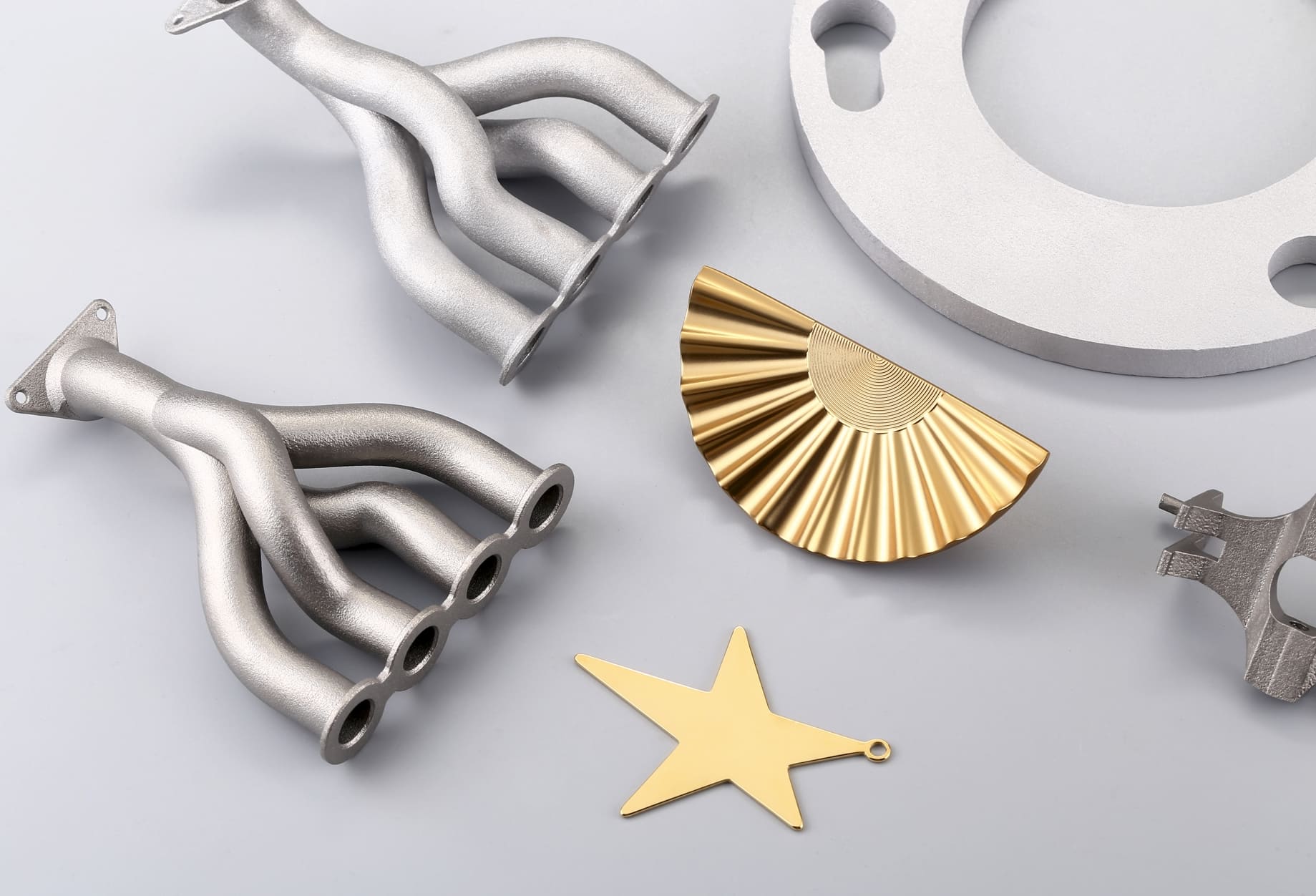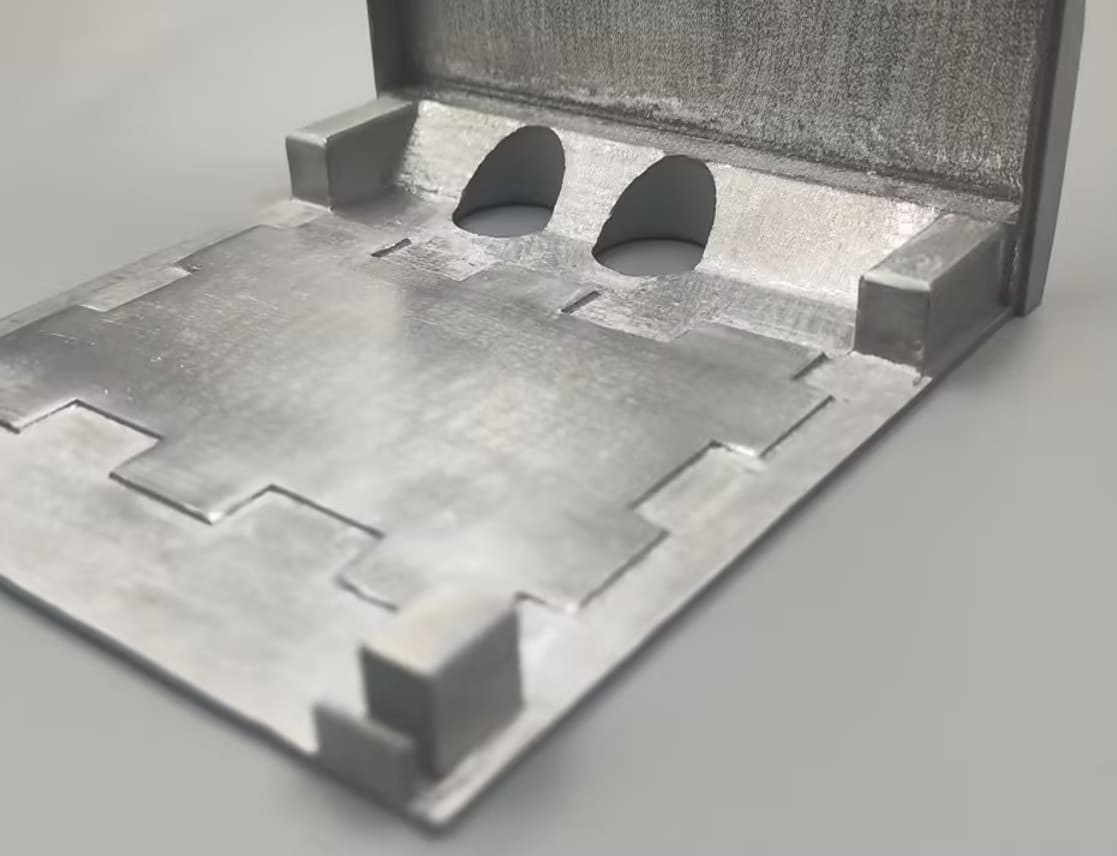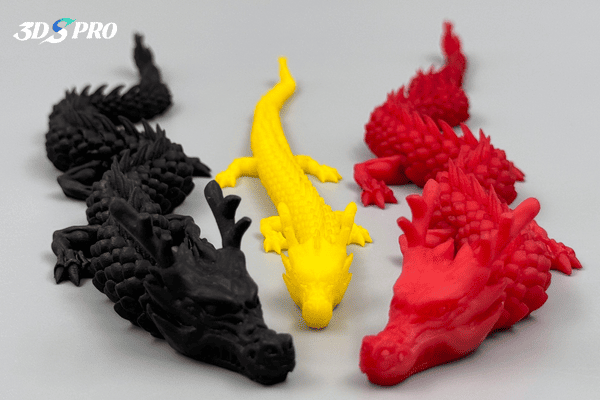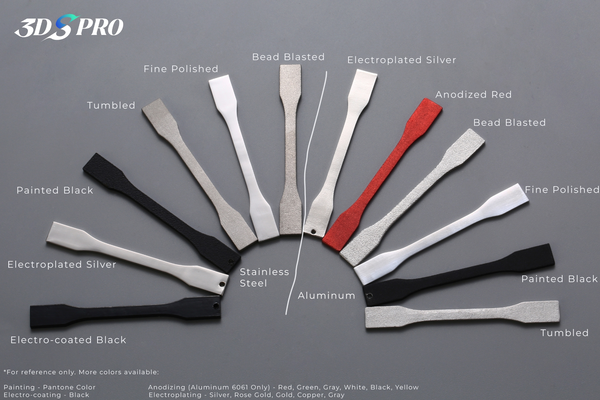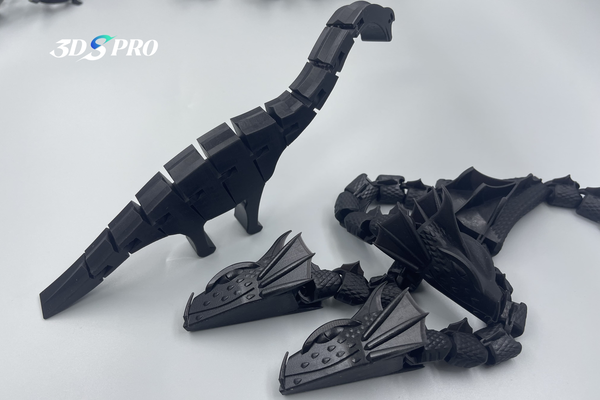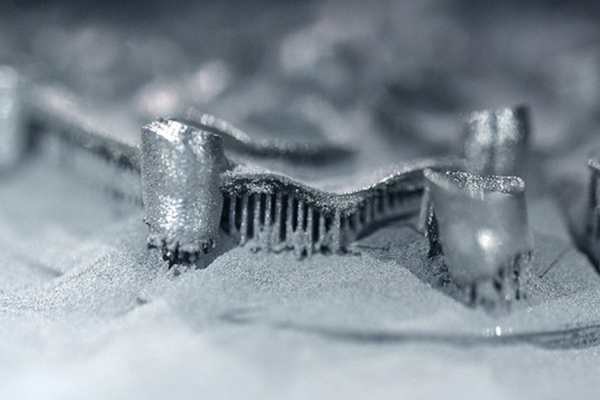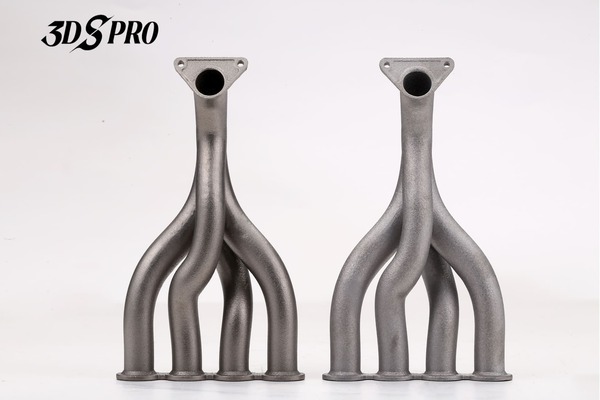3D Printed Dragons Made with Industrial Metal 3D Printers
● Process: SLM 3D Printing
● Material: Aluminum AlSi10Mg
● Post-processing: Electroplating
You can find numerous 3D printed dragons created by desktop 3D printers on popular platforms like Thingiverse, Cults3D, and Thangs. These dragons range from beautifully intricate designs to simpler low-poly models. But have you ever seen dragons printed with industrial metal 3D printers? Imagine the level of detail and texture that can be achieved with these advanced machines! The precision and quality of metal 3D printed dragons are truly remarkable. Here are the 3D printed dragons that we made:
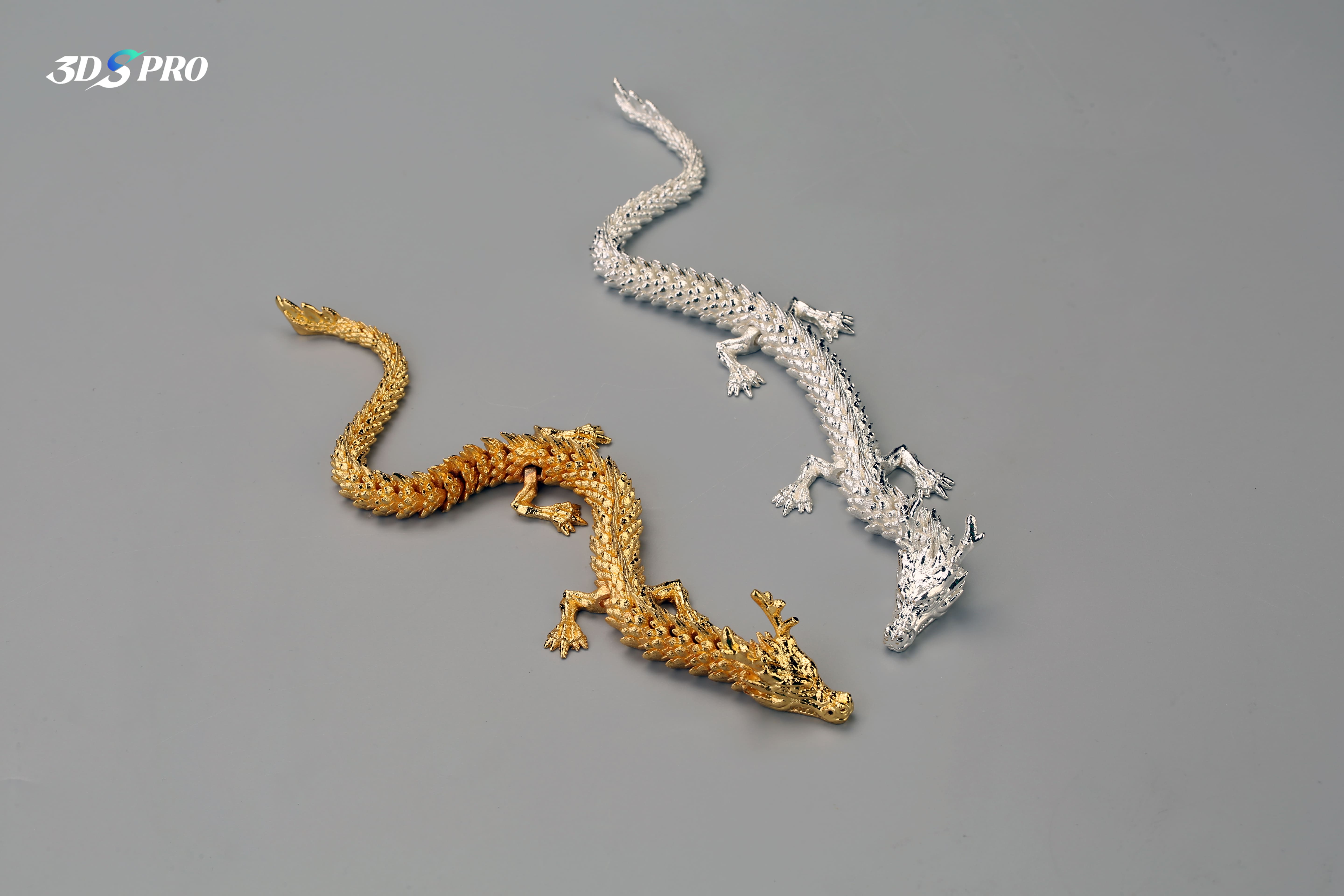
We created two 3D printed dragons that look so vivid. You can clearly see the detailed features on their heads, including their facial features and horns. The scales and claws are very precise and well-defined. Thanks to metal 3D printing technology (selective laser melting) we used, these details are high-resolution and well-rendered that you feel like you are watching a dragon in flight. And because they are articulated, you can put them in all kinds of dynamic poses to make them look even more majestic!
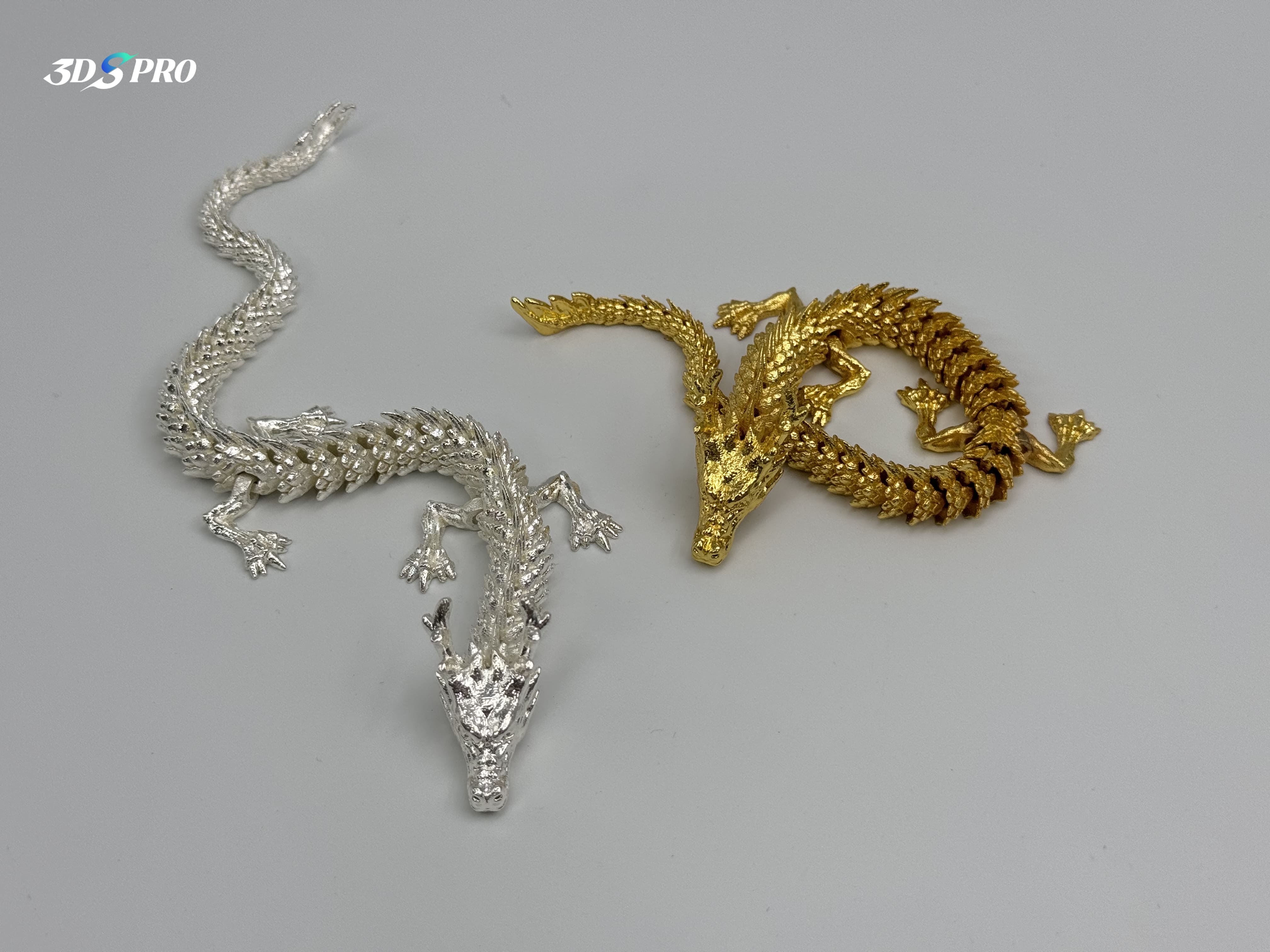
Our metal printing services can help you manufacture precise and complex parts, even those that are ready for immediate use. We utilize Selective Laser Melting (SLM) technology, which uses metal powders to print metal parts directly. SLM can produce high-strength and complex metal parts with good dimensional accuracy.
Here are our SLM 3D printing capabilities:
|
Lead Time*¹ |
Maximum Printing Size |
Tolerance |
3D Plus™ Post-processing Services*² |
|
5 Days/ 7 Days |
420mm * 420mm * 450mm |
± 300μm or 0.3%mm |
More than 20 types, such as heat treatment, anodizing, electroplating, etc. |
*1. Lead time depends on material selection.
*2. Selecting 3D Plus™ when quoting means you have chosen your preferred post-processing methods.
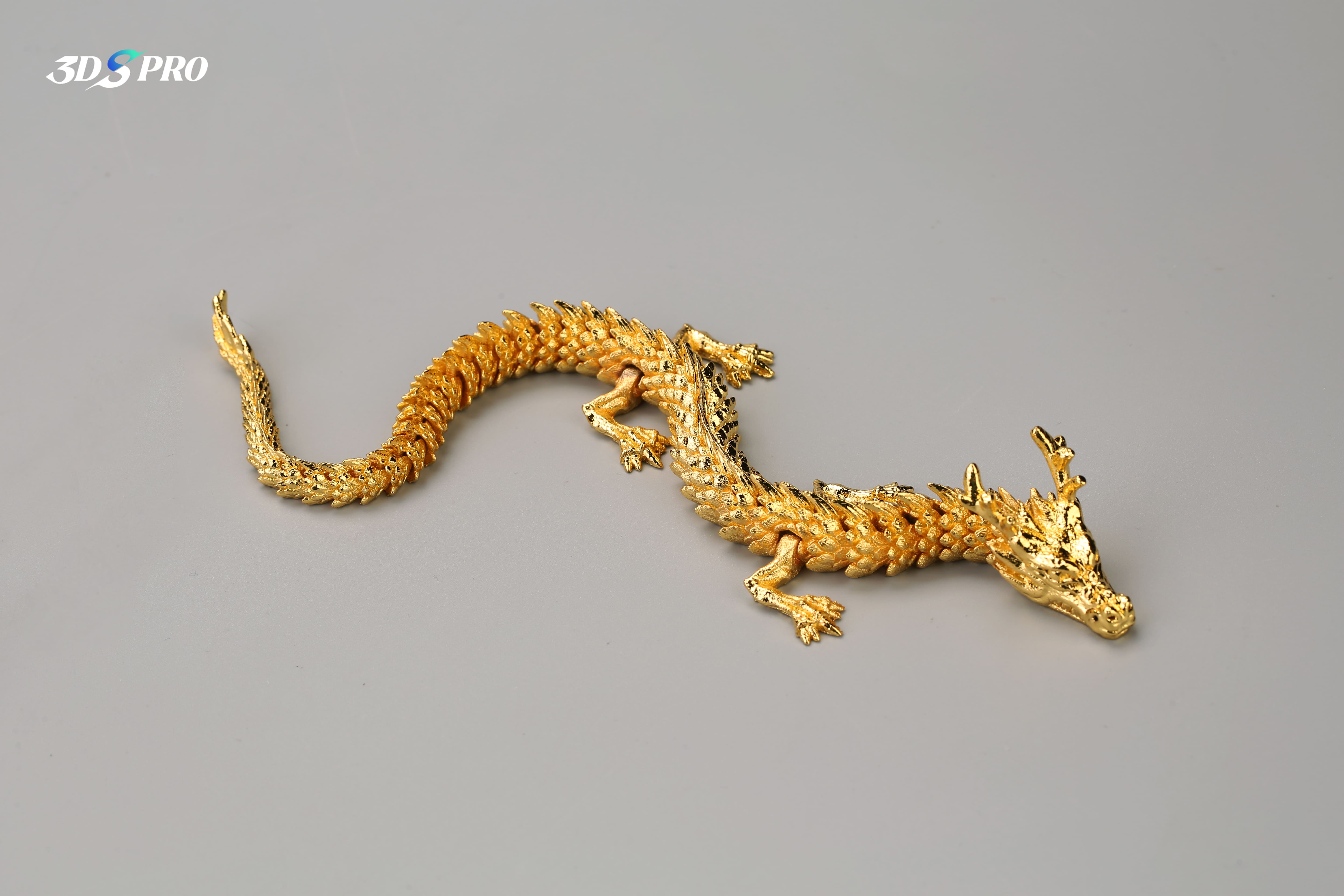
Electroplated Articulated Dragons
We post-processed these two 3D printed dragons using electroplating to achieve stunning gold and silver finishes. Freshly printed aluminum dragons don’t look like this; their natural color is a matte gray-silver. However, after electroplating, these articulated dragons shimmer and gleam!
Electroplating is a process that uses electrolysis to deposit a thin layer of a metal or alloy onto the surface of another metal. Electroplating prevents oxidation (like rust) and enhances wear resistance, electrical conductivity, reflectivity, and corrosion resistance (like copper sulfate). It also significantly improves aesthetics.
We offer post-processing services, called 3D Plus™ Solutions, which include electroplating. You can choose between different types of post-processing services on our instant quote platform. As you can see, we can electroplate articulated dragons with exceptional quality and details. You can feel confident using our electroplating services because we guarantee high quality and fidelity.
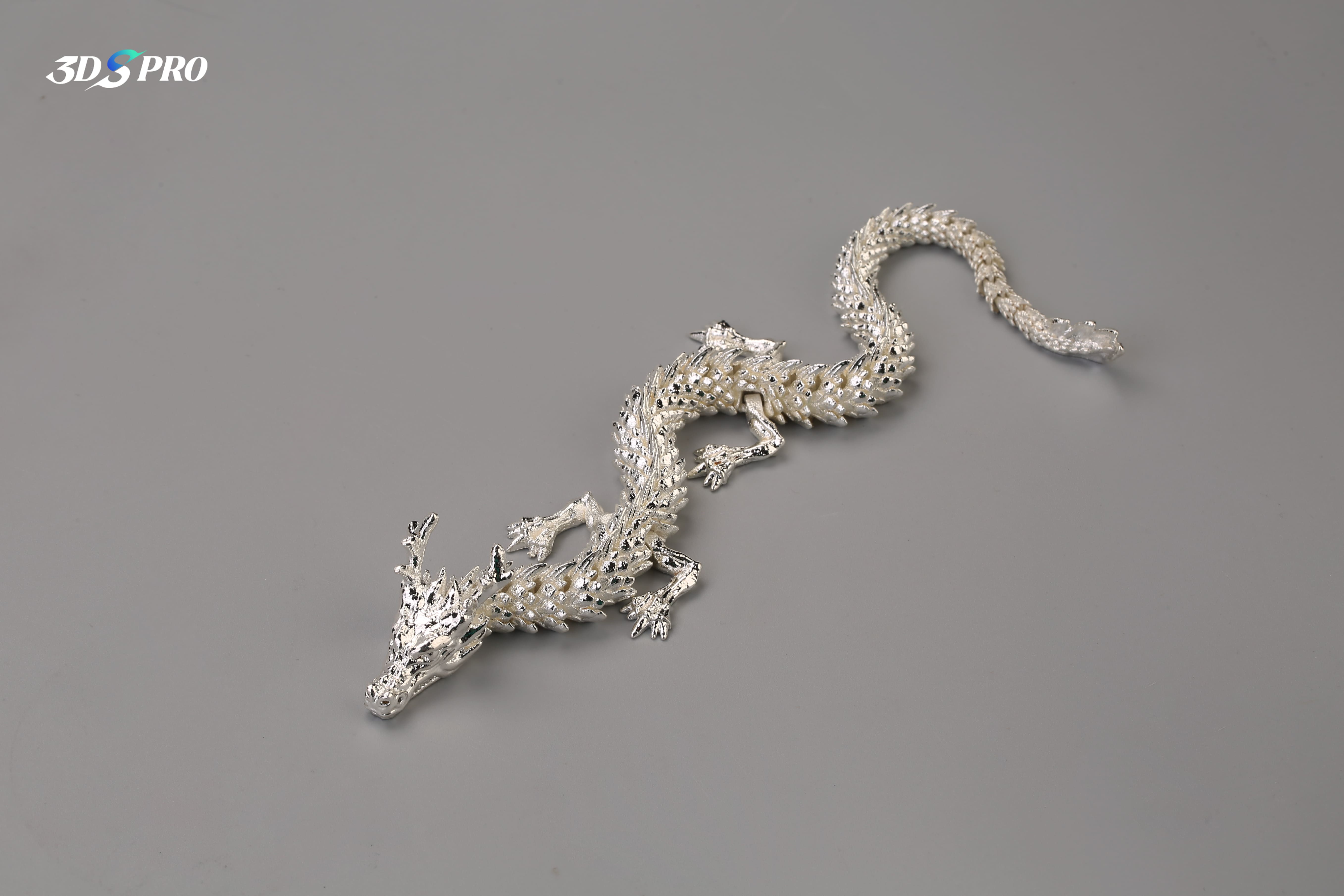
What are 3d printed articulated dragons?
3D printed articulated dragons are models designed with movable joints, allowing them to be posed in various dynamic positions. These dragons are often printed in a single piece, with the joints integrated into the design, making them flexible and capable of movement right out of the printer.
Key Features of 3D Printed Articulated Dragon
● Movable Joints: The articulated design includes joints that can bend and rotate, giving the dragon a lifelike range of motion.
● Intricate Details: These models often feature detailed scales, claws, wings, and other intricate elements that showcase the capabilities of 3D printing technology.
● Variety of Designs: You can find a wide range of articulated dragon designs, from realistic and highly detailed to more stylized and simplified versions.
● Materials: While many articulated dragons are printed using standard desktop 3D printers with materials like PLA or ABS, industrial-grade printers can use metal or other advanced materials to create even more durable and detailed models.
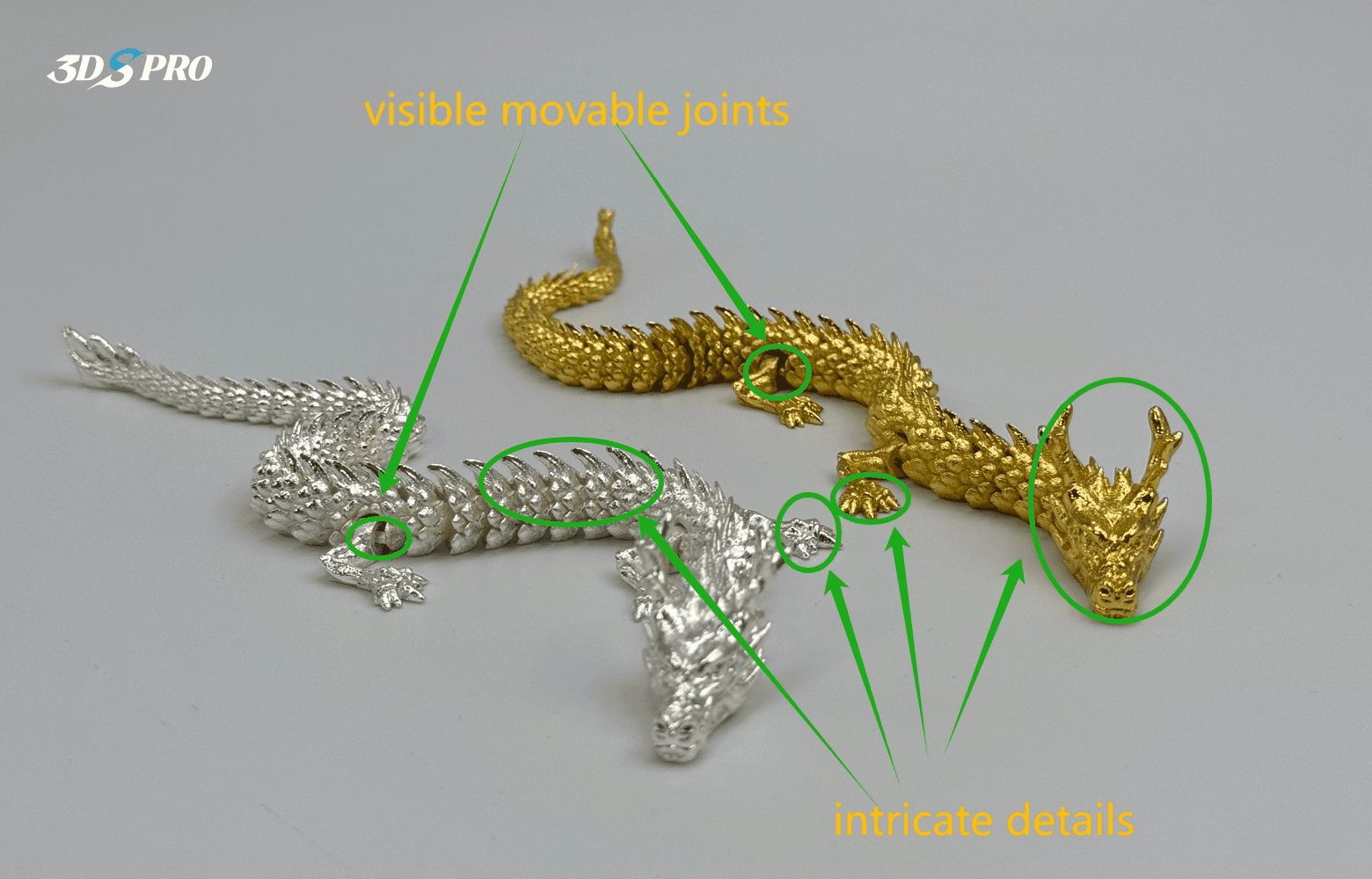
Why 3D printing can make articulated objects?
3D printing excels at creating articulated parts due to its ability to produce complex geometries and integrated joints in a single print. By using various materials, 3D printers can create durable and movable joints. The high precision and accuracy of 3D printers ensure that these joints function smoothly, allowing for dynamic movement. Additionally, the customization capabilities of 3D printing enable designers to easily modify and optimize their models for articulation, which is ideal for producing articulated toys, models, and functional prototypes.
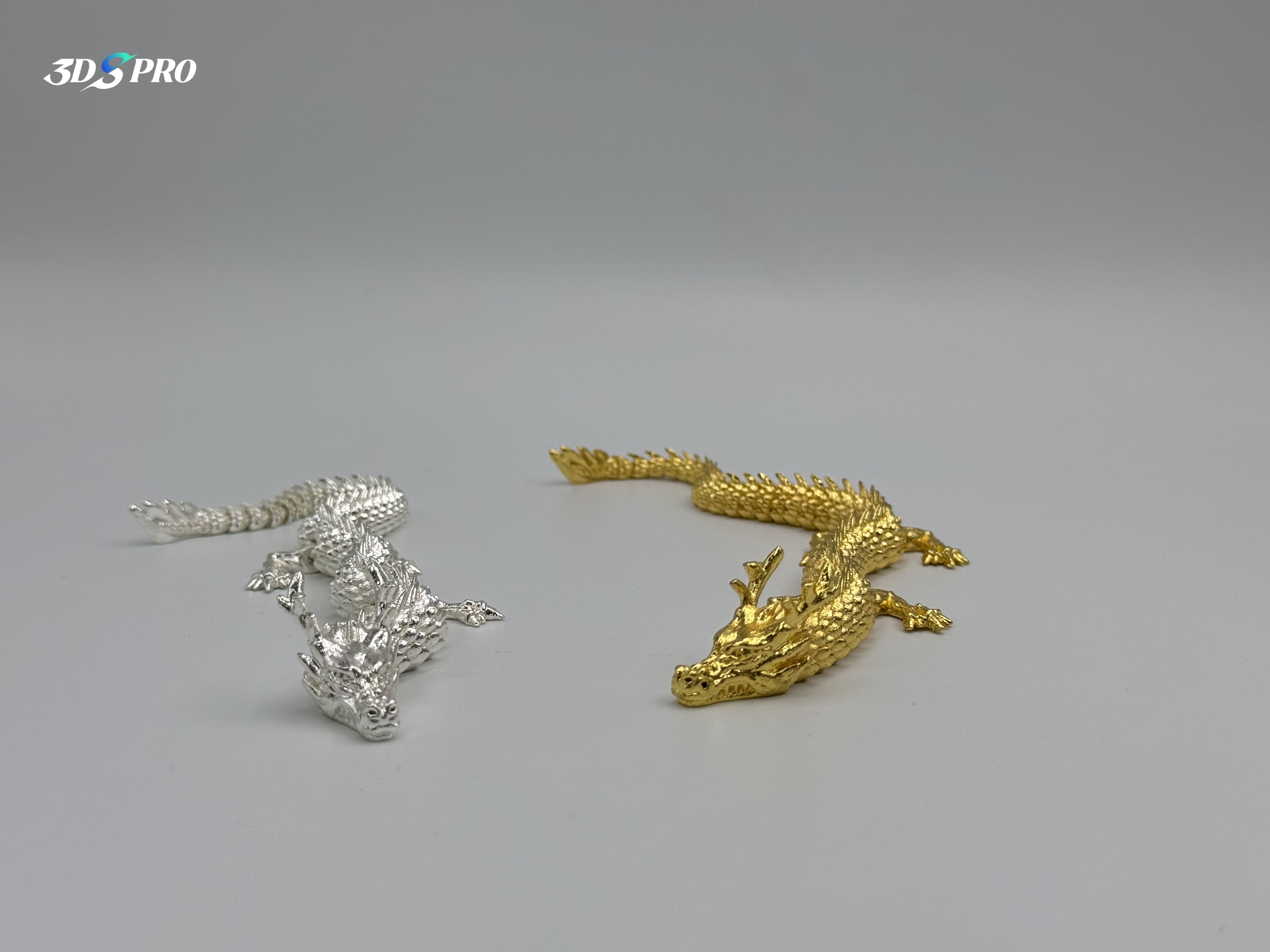
How to 3D print articulated dragons?
3D printing articulated dragons can be a fun and rewarding project.
You'll Need to:
Choose a Design
● Download a Model: You can find a pre-designed articulated dragon model HERE!
● Create Your Own: If you’re comfortable with 3D modeling software like Blender, you can design your articulated dragon.
Prepare Your Printer
● Printer Type: Ensure you have a 3D printer capable of fine detail and precision. FDM printers are popular choices, but for higher detail and precision, consider using a resin printer.
● Filament: Choose a suitable filament. PLA is a common choice for its ease of use, but you can also use more flexible materials like TPU for more dynamic articulation.
Slicing the Model
● Slicing Software: Use slicing software like Cura or PrusaSlicer to prepare your model for printing. Import the STL file and adjust the settings.
● Settings: Key settings include layer height (0.1-0.2mm for fine detail), infill density (20-30% for strength), and print speed (slower speeds for better detail). Ensure supports are disabled if the model is designed to be printed without them.
Printing the Model
● Start the Print: Begin the printing process and monitor the first few layers to ensure proper adhesion and alignment.
● Check Progress: Periodically check the print to ensure there are no issues like warping or layer shifting.
Post-Processing
● Remove from Bed: Carefully remove the printed dragon from the print bed once it’s complete.
● Clean Up: Remove any stringing or minor imperfections using a hobby knife or sandpaper.
● Articulation: Gently move the joints to ensure they are free and functional. If they are too tight, carefully work them loose.
Addtional Post-processing
● Painting: If desired, you can paint your dragon using acrylic paints to add more detail and realism.
● Electroplating: For a metallic finish, consider electroplating the model if you have access to the necessary equipment.
Now you can successfully print your dragon! You can also print articulated dragons using SLA/SLS/MJF/SLM 3D printing services at 3DSPRO, we are here to help!
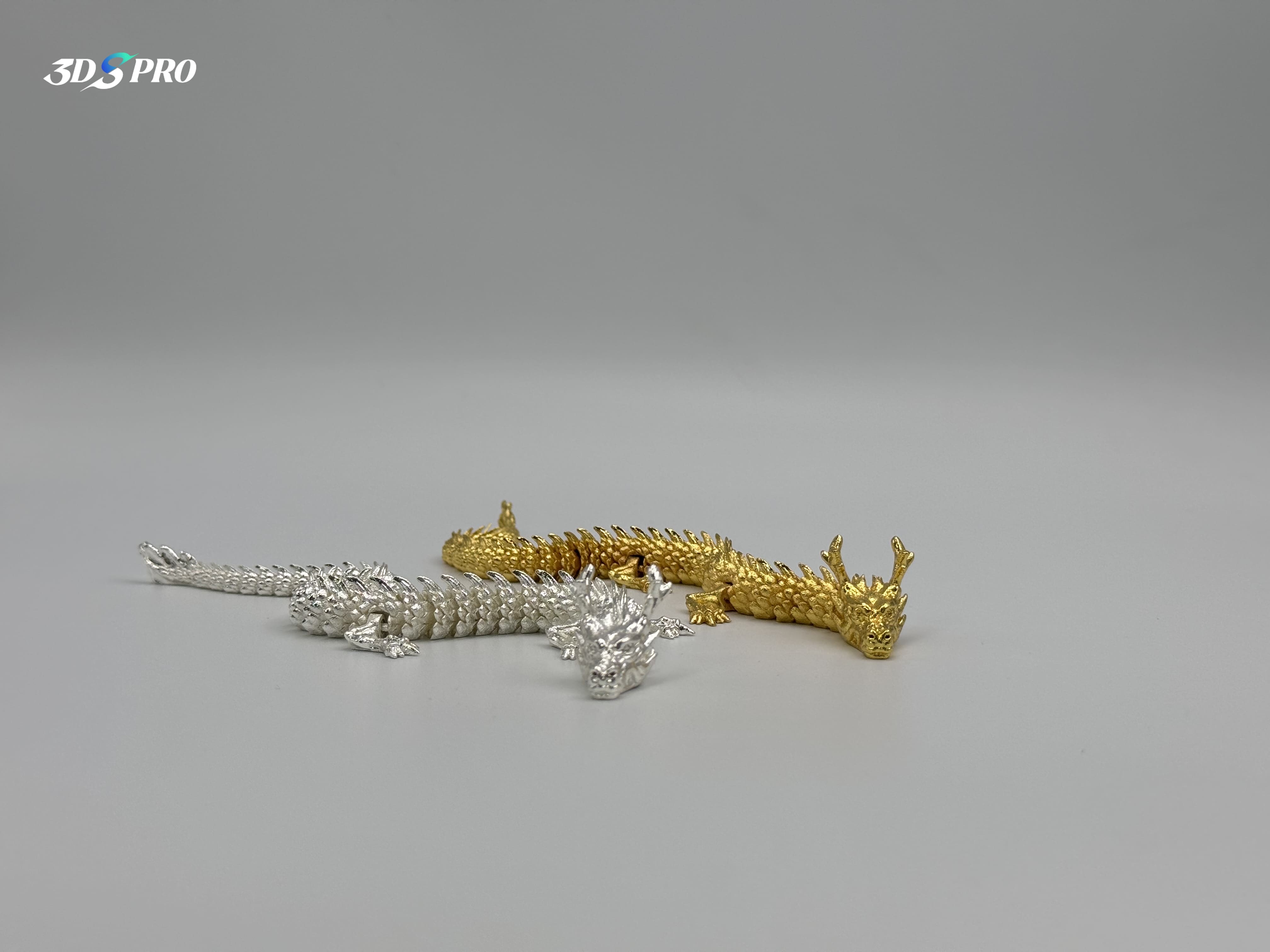
COMMENTS
- Be the first to share your thoughts!












